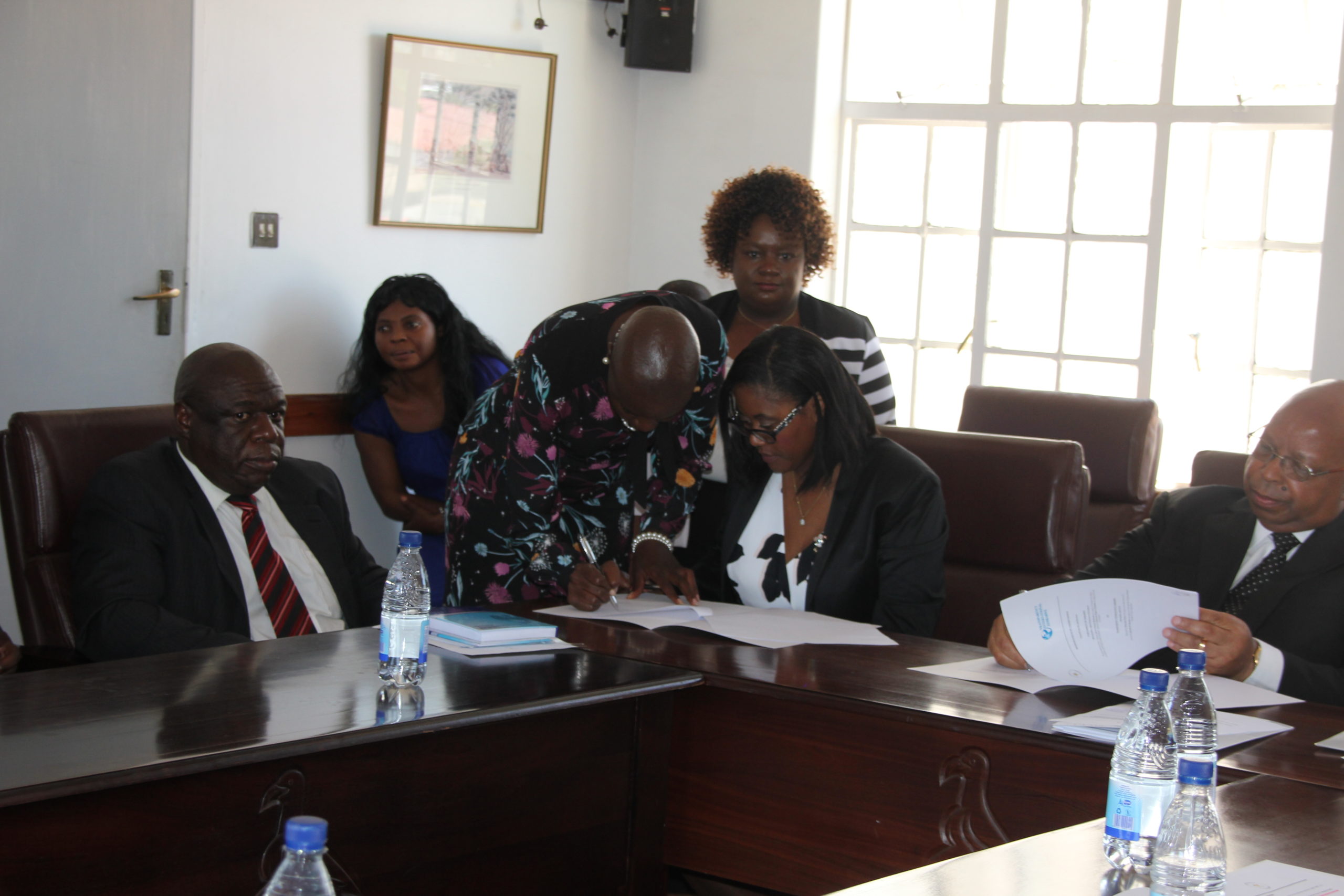The Parliament has said it will be assisted in fulfilling its constitutional mandate of making laws for the peace, order and good governance of Zimbabwe through memoranda of understanding (MOUs) it signed Thursday with three partner organisations.
In his address during the signing of the MOUs among Transparency International Zimbabwe (TIZ), Association of European Parliamentarians with Africa (AWEPA), Public Affairs and Parliamentary Support Trust (PAPST) and Parliament, speaker of the National Assembly Jacob Francis Mudenda said the agreements would enable Parliament to fulfill its mandate in terms of Section 117 (2) of the Constitution
“It has been a long and ardous process of frank engagement as we tried to refine the MOUs with the cooperating development partners with a single-minded focus to develop an effective, efficient, participatory, gender-sensitive and democratic Parliament that responds to the needs and aspirations of our people,” Mudenda said.
He said the MOUs were emphatic on the need of promoting the involvement of the public and other key stakeholders in the work of Parliament and that it was the duty to protect the public trust.
One of the cooperating partners, TIZ, speaking through its board member Sandra Mehlomakulu during the signing ceremony, said it was their desire to strengthen institutions of democratic governance (Parliament included), to promote constitutional and reform processes.
Mehlomakulu said Parliament and TIZ would organize and coordinate mutually agreed activities that include capacity building, training and consultative meetings for the Parliamentary Committees and other staff of Parliament.
She said there was also need to strengthen the capacity of Members of Parliament to enable them to mainstream issues of transparency and accountability and enhance their capacity to counter corruption through tracking and monitoring the use of public resources by all institutions of the state.
TIZ also engages in research in corruption in land, extractive industries and gender issues among others. It also releases indices on corporate governance and influences government to come up with policies on governance as well as effective monitoring and tracking of use of public resources.
Mudenda thanked the cooperating partners for providing Parliament with technical support and sound knowledge in their legislative and oversight mandates and underscored the fact that funding from Treasury was inadequate.
The executive director of PAPST, Michael Mataure said it his organization looks forward to equitable, people-focused national governance. He was pleased that PAPST was coming back to work with Parliament after a decade-long hiatus.
As a former Member of Parliament, Mataure was optimistic that the experiences he gained as a legislator would assist in bridging gaps in development.
“Since 2000, SAPST has supported Members of Parliament in various constituencies. Between 180 and 200 MPs have attended post-election workshops where they are assisted with induction programmes, and advice on Parliamentary business. Some have graced occasions as guests of honours at our activities or meetings.
“We have also hosted students and professionals from West African countries like Liberia and Sierra-Leoneas well as Southern countries like Lesotho and Tanzania,” Mataure said.
They have also participated in creating ambience for Parliament to act as institution represnting public interest and have supported the activities of Parliament through resource mobilization and improve its capacity to document its experiences and come up with case studies where necessary.
AWEPA deputy director of bilateral programmes and partner relations said her organisation has in the past partnered institutions like Zimbabwe Institute in funding exchange visits by committee members to attend international fora on climate change and food security among others, as a way of capacity building. This is done with a view of improving their capacities and knowledge to execute their duties.






